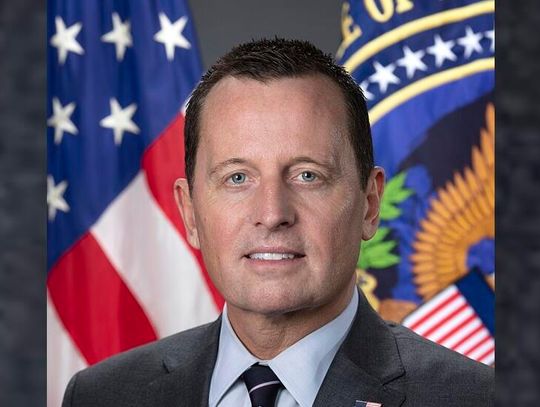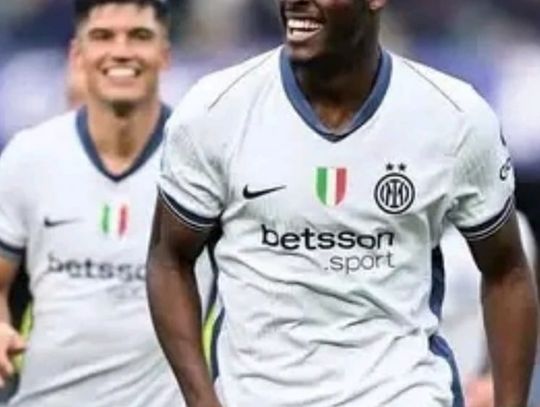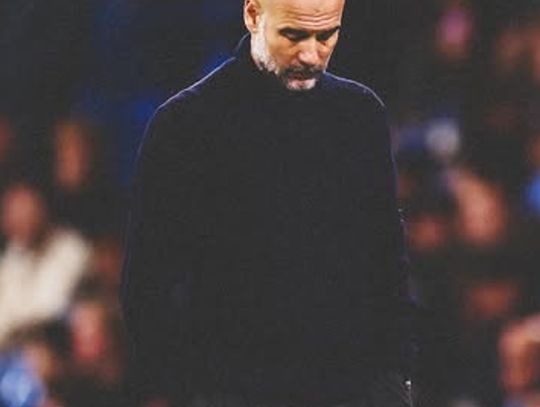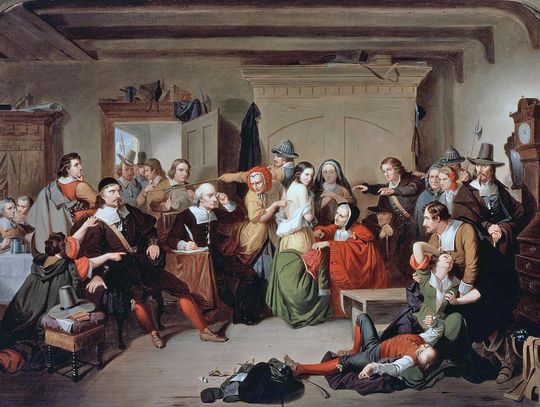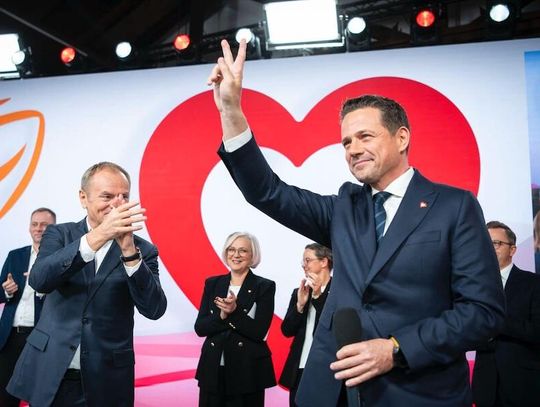Jak mówiła moja mama – kobieta, która przeżyła wiele wydarzeń historycznych – „Oto jest pytanie”.Ostatnio dużo o tym myślałem, z powodu tego, co oglądam w wiadomościach. Po pierwsze, wszystkie wiadomości o tej okropnej wojnie Rosji z Ukrainą. Wydaje się, że ona toczy się bez końca i sprawia, że myślę o wszystkich wojnach, które poznałem w ciągu 74 lat życia. A gdyby tego nie było dość, zalewają nas wiadomości o wojnie w Stanach Zjednoczonych, u nas, przeciwko dzieciom i dobrym ludziom. Do tej pory od początku tego roku w naszym kraju doszło do 232 masowych strzelanin. Wydaje mi się, że co noc, jak kładę się spać, to słyszę o jednej masowej strzelaninie, a później budzę się rano i słyszę o kolejnej – już innej masowej strzelaninie.Czytam o tym wszystkim i słucham wiadomości, i ciągle zadaję sobie pytanie: „Czy niczego się nie uczymy z historii?”
Najwyraźniej nie. Wojny i zabójstwa, które mają miejsce dzisiaj, będą miały miejsce także jutro, pojutrze i popojutrze. Politycy, którzy mogliby coś zmienić, są zbyt zajęci pojawianiem się w programach informacyjnych, aby powiedzieć nam, dlaczego nie mogą nic zrobić.Czego więc uczy nas historia?Być może historia uczy nas, że jedyne dobro, jakie możemy mieć, to ten SUV, ten lexus, infiniti lub mercedes benz, o którym marzymy.Zapomnij o powstrzymaniu wojen, które dotykają tak wielu. Zapomnij o próbie powstrzymania śmierci dzieci w szkołach. Zapomnij o staraniach o sprawiedliwość dla tej lub innej osoby. Zapomnij o próbach przekonania jakiegoś głupka mordercy, by docenił świętość życia innych ludzi. Zapomnij o próbach uczynienia świata lepszym miejscem.Wszystko, co mamy – na co mamy nadzieję, to lśniący supersamochód lexus albo ta chromowana lodówka samsunga lub najnowszy iPhone z bezpośrednim dostępem do światowych gier, jak Wordle czy Sudoku, ponieważ łaska, sprawiedliwość, braterstwo, miłość, Era Wodnika, harmonia i zrozumienie to wszystko kłamstwa.Nie sądzisz?Oto coś, co powiedział Saul Bellow, facet z mojej starej dzielnicy w Chicago, który zdobył Literacką Nagrodę Nobla:„Myślisz, że historia jest historią miłujących się dusz? Głupcze! Spójrz na miliony, które zmarły. Czy możesz im współczuć? Poczuć ich? Nic nie możesz! Było ich zbyt wielu. Spaliliśmy ich na popiół i zasypaliśmy z pomocą buldożerów. Historia jest historią okrucieństwa, a nie miłości”.Znam wybitnych profesorów historii i socjologów, którzy zastanawiają się nad takimi rzeczami, jak to, „Czego może nas nauczyć historia?” Ale większość ludzi nie zadaje sobie tego pytania. Wygląda na to, że większość z 7 miliardów ludzi na Ziemi pyta: „Gdzie mogę uzyskać dobrą cenę za toyotę highlander?”
I dlaczego chcą kupić toyotę highlander?Ponieważ wiedzą, że jeśli nie kupią jej teraz – zanim następna horda zejdzie z gór albo nadejdzie do nas kolejna epoka lodowcowa lub wybuchnie następna wojna albo następny zabójca pojawi się w Walmarcie – to już nigdy nie kupią tej toyoty highlander i nigdy nie dotkną tego, co na moment da im złudzenie, że wszystko jest dobrze.
Do we learn anything from history?Do we learn from history?
As my mother – a woman who lived through a lot of history – would say, “That’s the question.”I’ve been thinking about this a lot recently because of what’s been happening in the news. First, there is all that terrible news about the Russian war against Ukraine. It seems to go on and on and makes me think of all the wars I’ve known during my 74 years. Then, if that wasn’t bad enough, we’ve started hearing a flood of news about the war in the United States against the children and the good people here. So far there have been 232 mass shootings in our country since the beginning of the year. I seem to go to sleep every night hearing about one mass shooting, and I seem to wake up every morning hearing about a different mass shooting.I read about all this and hear about it repeatedly on the news, and I ask myself repeatedly “Don’t we learn anything from history?”Apparently not. The wars and the killings that are happening today will also be happening tomorrow and the day after and the day after that. The politicians who could change things are too busy appearing on the news shows to tell us why they can’t do a thing.So what does history teach us?Maybe what history teaches us is that the only good we can ever have is that SUV, that Lexus or Infiniti or Mercedes Benz we dream of.Forget trying to stop the wars that are affecting so many. Forget trying to prevent the deaths of school children. Forget trying to get justice for this or that person. Forget trying to convince some murderous fool to appreciate the sanctity of other people’s lives. Forget trying to make the world a better place.All there is — all that we can really hope for — is that shiny Lexus supercar or that chrome Samsung refrigerator or that brand new Apple iPhone with direct access to a world of games like Wordle and sudoku because grace, justice, brotherhood, love, the age of aquarius, harmony and understanding are all lies.You don’t think so?Here’s something Saul Bellow, a guy from my old neighborhood in Chicago who won the Nobel Prize for Literature, said:“You think history is the history of loving hearts? You fool! Look at these millions of dead. Can you pity them? Feel for them? You can do nothing! There were too many. We burned them to ashes, we buried them with bulldozers. History is the history of cruelty, not love.”
I’ve known big-time history professors and sociologists who wonder about stuff like: What can history teach us? But most people aren’t asking this question. It seems like most of the 7 billion people on earth are asking, “Where can I get a good price on a Toyota Highlander?”And why do they want to get that Toyota Highlander?Because they know if they don’t get it now before the next horde comes down from the mountains or the next ice age descends on us or the next war starts or the next killer shows up at the Walmart down the street, they’ll never get that Toyota Highlander, never touch something that once for a couple of minutes gave them the illusion that things were looking up.
John Guzlowski
amerykański pisarz i poeta polskiego pochodzenia. Publikował w wielu pismach literackich, zarówno w USA, jak i za granicą, m.in. w „Writer’s Almanac”, „Akcent”, „Ontario Review” i „North American Review”. Jego wiersze i eseje opisujące przeżycia jego rodziców – robotników przymusowych w nazistowskich Niemczech oraz uchodźców wojennych, którzy emigrowali do Chicago – ukazały się we wspomnieniowym tomie pt. „Echoes of Tattered Tongues”. W 2017 roku książka ta zdobyła nagrodę poetycką im. Benjamina Franklina oraz nagrodę literacką Erica Hoffera za najbardziej prowokującą do myślenia książkę roku. Jest również autorem serii powieści kryminalnych o Hanku i Marvinie, których akcja toczy się w Chicago oraz powieści wojennej pt. „Retreat— A Love Story”. John Guzlowski jest emerytowanym profesorem Eastern Illinois University.-John Guzlowski's writing has been featured in Garrison Keillor’s Writer’s Almanac, Akcent, Ontario Review, North American Review, and other journals here and abroad. His poems and personal essays about his Polish parents’ experiences as slave laborers in Nazi Germany and refugees in Chicago appear in his memoir Echoes of Tattered Tongues. Echoes received the 2017 Benjamin Franklin Poetry Award and the Eric Hoffer Foundation's Montaigne Award for most thought-provoking book of the year. He is also the author of two Hank Purcell mysteries and the war novel Road of Bones. Guzlowski is a Professor Emeritus at Eastern Illinois University.




